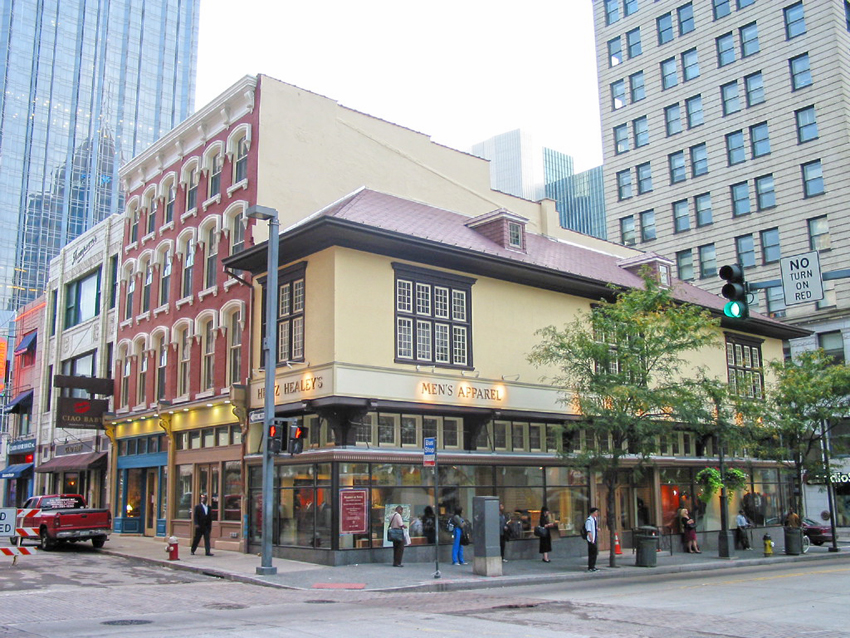
Historic preservation epitomizes green principles, saving and recycling older buildings that contain the stored talent, craftsmanship, and labor of past generations while simultaneously stablizing and rejuvenating our cities and neighborhoods. Market at Fifth incorporates the latest in green, recyclable, and energy-efficient technologies, and is a LEED Gold certified development. It is one of only a handful of development projects in the country to reach this level of LEED status while keeping the architectural integrity of the historic structures.
Gold Leadership in Energy and Environmental Design (LEED)
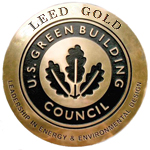 Market at Fifth is only one of a half dozen buildings in the United States that is on the National Register and has achieved LEED Gold certification. The Leadership in Energy and Environmental Design (LEED) Green Building Rating System™ encourages and accelerates global adoption of sustainable green building and development practices through the creation and implementation of universally understood and accepted tools and performance criteria.
Market at Fifth is only one of a half dozen buildings in the United States that is on the National Register and has achieved LEED Gold certification. The Leadership in Energy and Environmental Design (LEED) Green Building Rating System™ encourages and accelerates global adoption of sustainable green building and development practices through the creation and implementation of universally understood and accepted tools and performance criteria.
LEED is a third-party certification program and the nationally accepted benchmark for the design, construction and operation of high performance green buildings. LEED promotes a whole-building approach to sustainability by recognizing performance in five key areas of human and environmental health: sustainable site development, water savings, energy efficiency, materials selection and indoor environmental quality.
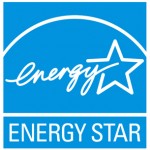 LEED-certified buildings are designed to:
LEED-certified buildings are designed to:
- Lower operating costs and increase asset value.
- Reduce waste sent to landfills.
- Conserve energy and water.
- Be healthier and safer for occupants.
- Reduce harmful greenhouse gas emissions.
- Qualify for tax rebates, zoning allowances and other incentives in hundreds of cities.
- Demonstrate an owner’s commitment to environmental stewardship and social responsibility.
Green Technologies Used in Market at Fifth:
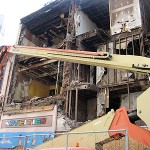 Reusing Original Bricks and Woodwork:
Reusing Original Bricks and Woodwork:
Reuse of the building’s original fabric was paramount with over 75% of the existing roof, walls, and floor structure being preserved. Reconstruction of the Graeme Street facade entailed the complete removal of the facades, brick-by-brick. The bricks from the more historic facade were saved, cleaned, and reused to rebuild the outer wall of 441 Graeme St.
Recycled Construction Material:
During the complex process of rehabilitation, all construction debris was sorted and recycled.
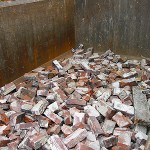 Recycled Steel, Drywall, and Organic Doors:
Recycled Steel, Drywall, and Organic Doors:
Recycled steel is used for structural elements as well as wall studs and drywall with recycled content was made locally in Ambridge, PA. Interior doors contain a wheat core, grown in America.
Recycled and Green Flooring:
Flooring uses many different recycled or natural products. The concrete used in the floors contains recycled content. 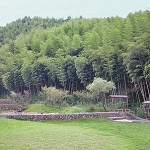 Lineolum, a product derived from plants, is also used. All coatings (paint), are Low VOC. Natural granite was used in the kitchens and bathrooms.
Lineolum, a product derived from plants, is also used. All coatings (paint), are Low VOC. Natural granite was used in the kitchens and bathrooms.
Bamboo Flooring:
The interior of each apartment contains all-natural bamboo flooring. A rapidly renewable resource, bamboo is the fastest-growing plant on earth. It has been clocked surging skyward as fast as 45 inches in a 24-hour period and can also reach a maximum growth rate exceeding 40 inches per hour for short periods of time. 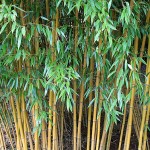 After harvesting, bamboo does not require replanting, it has an extensive root system that continually sends up new shoots, naturally replenishing itself, making it one of the most renewable resources known.
After harvesting, bamboo does not require replanting, it has an extensive root system that continually sends up new shoots, naturally replenishing itself, making it one of the most renewable resources known.
Bamboo flooring is typically made by slicing bamboo poles into strips. These are destarched by boiling, glued into boards, and milled. The bamboo species used to make flooring (Phyllostachys pubescens—known as “moso” in Japan, and “mao zhu” in China) matures in three years; is self-regenerating; and uses little or no fertilizers and pesticides.
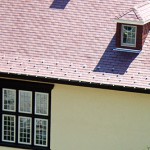 EnergyStar Compliant Amenities:
EnergyStar Compliant Amenities:
Light fixtures and heating and cooling are EnergyStar compliant. The building uses an Energy Recovery Ventilator on the roof that syphons off and reuses heat from the exhaust. All windows are high-efficiency double-paned thermo-glass. Faucets, toilets, and showerheads are all low-flow to preserve water.
Recycled & Green Roof:
The reddish-orange roof of Heinz Healey’s Fine Mens Clothing was covered with EcoStar’s Majestic Slate, composed of up to 80% recycled post-industrial rubber and plastic. These post-industrial materials consist of waste that includes car bumpers and baby diaper production remnants. 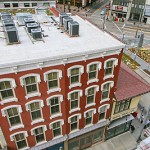 Because of their recycled content, EcoStar roofing tiles feature incredible strength and flexibility and provide long-lasting performance. The use of EcoStar products also preserves valuable natural resources, since no trees are used and no stones are quarried in the production of EcoStar’s Majestic Slate Tiles. Because of their eco-friendly efficiency, EcoStar products can significantly contribute toward LEED® credit requirements. Leadership in Energy & Environmental Design (LEED) is the national standard for the development of high-performance sustainable buildings.
Because of their recycled content, EcoStar roofing tiles feature incredible strength and flexibility and provide long-lasting performance. The use of EcoStar products also preserves valuable natural resources, since no trees are used and no stones are quarried in the production of EcoStar’s Majestic Slate Tiles. Because of their eco-friendly efficiency, EcoStar products can significantly contribute toward LEED® credit requirements. Leadership in Energy & Environmental Design (LEED) is the national standard for the development of high-performance sustainable buildings.
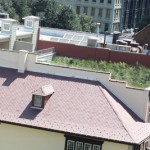 TPO membrane was installed on the roof of the residential units. TPO, a recycled thermoplastic single-ply roofing single membrane “white roof”, is among the fastest growing commercial roofing products and has gained broad industry acceptance for its many performance advantages such as increases for light- and heat-reflectivity, energy efficiency, resistance to ultraviolet, ozone and chemical exposure.
TPO membrane was installed on the roof of the residential units. TPO, a recycled thermoplastic single-ply roofing single membrane “white roof”, is among the fastest growing commercial roofing products and has gained broad industry acceptance for its many performance advantages such as increases for light- and heat-reflectivity, energy efficiency, resistance to ultraviolet, ozone and chemical exposure.
Another section of the roof over the residential units is planted with sedum that naturally recycles rainwater, provides a cooling-effect in the summer, and enhances the beauty of the two private roof-decks of the penthouse apartments.
 |
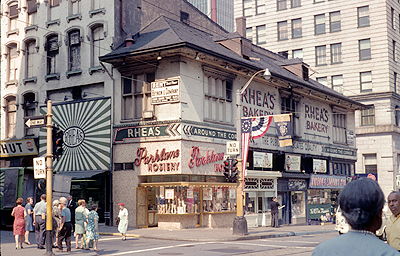 |
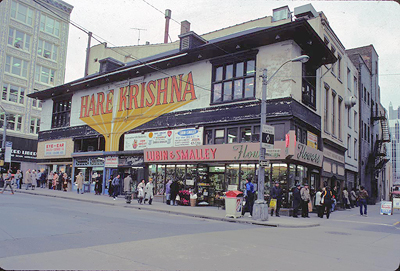 |
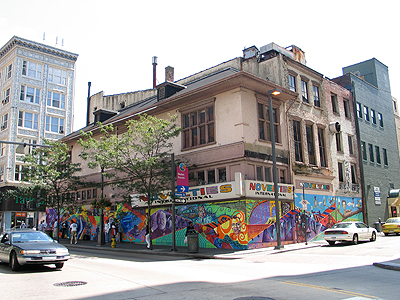 |
